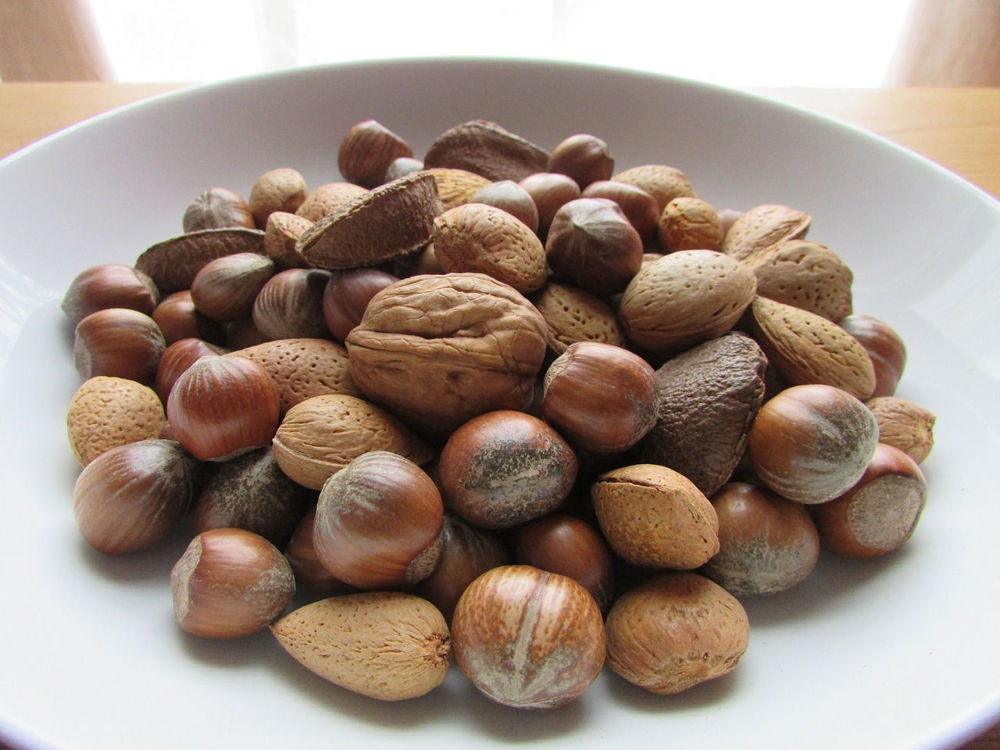
Happy Holidays? You sure about that? Singing legend Andy Williams crooned that it’s the most wonderful time of the year. Perhaps he should have added a lyric that it’s also among the most stressful. And considering the utter delight that 2020 has already been, this holiday season has shaped up to be one of the toughest yet.
Why so stressed? Think about it. Your savings account starves while your bills feast. You want to get your partner something despite their insistence they don’t need anything. You need to get your kid the new PlayStation or Xbox – plus the games, extra controller, headset and pricey monthly online gaming pass that enables them to ignore you until next December.
Not enough anxiety yet? How about the pressure of trying to enjoy a “perfect holiday” with your family rather than the crazy Univision telenovela that often unfolds this time of year? Pulling double duty at work before your office shuts down for the week between Christmas and New Year’s? The holiday parties to attend or, worse, host? The endless droves of people making with the merry on television while you wrap presents (badly) into ungodly hours of the night? These and so many other reasons are why the holidays can leave you bellowing, “Ho-Ho-Oh-Hell-No.”
According to a study by the American Psychological Association, 31 percent of the males polled reported increased stress levels during the holiday season. The symptoms of their stress reveal themselves like a new prize opened daily in some sadistic advent calendar: Depression, fatigue, acid reflux, rapid heart rate, sleep disorder, headache, muscle tension, appetite loss or overeating, dizziness, erectile dysfunction. Stress also significantly impacts men’s testosterone levels, so if you’re already suffering from “Low T”… well, the holidays can leave you channeling Ebenezer Scrooge more than Jolly Ol’ St. Nick. “Bah, Humbug,” indeed.
You see, the anxiety that builds up amid the Yuletide season gives you an early Christmas gift that’s way too “generous”: Cortisol.[1] A hormone that’s produced by your adrenal glands, cortisol helps regulate our blood pressure, cardiovascular, circulatory and male reproductive systems. Too much at once, though, and this hormone goes all “corporate,” curbing body functions it considers “nonessential” for producing a “fight or flight” response – in this case, how we handle a stressful situation. It also contributes to fat storage. If you’ve dressed up as Santa over the years, you may start noticing you no longer require a pillow to act as your midsection. And your libido? Well, too much cortisol chops that down faster than a hyperactive lumberjack takes an axe to a Fraser fir.
How can we men get that lump of coal out of our hormonal stocking and ensure our testosterone doesn’t a-have a Blue, blue-blue-blue Christmas? (Sorry, Elvis.) Well, we’ve made a list, we’ve checked it twice, and we’ve found out five ways that are “thoughty” and nice. So let’s go to town here:
3. TRADE IN THE FIGGY PUDDING AND SPIKED EGGNOG FOR CHESTNUTS AND LOWFAT MILK.
5. GO TO BED. NO, REALLY. GO TO BED.

You’re probably thinking, Make time for myself. Gee, why didn’t I think of that? Yes, it seems obvious, but it’s arguably the hardest thing to do on this list, especially between the time after Thanksgiving and before the ball drops to ring in the New Year. Nevertheless, it’s one thing that you must try doing, above all else, if you want to bring your stress levels down and keep your testosterone up.
It’s also not an impossible task. This needn’t be an all-day affair for you to engage in. If you can treat yourself to a daily routine or activity that gives you peace of mind for even 15 minutes, you’re making progress. Read a chapter from a book. Walk around the block twice. Have a cup of decaf while listening to your favorite podcast or playlist. Anything. It’s your time; spending it your way will bring you balance and help you focus on what you want to accomplish in the day ahead. You’ll find that your to-do list feels far more attainable when you just pull back from it and catch your breath.
Sure, you could add this to the first item on our list, but meditation warrants some solo attention. Low T is a major contributor to “brain fog” – memory problems, decreased mental clarity and a lack of focus. Throw the holidays into the already-muddled mix that is your mind, and you start worrying so much about what to do next that you practically shut down to avoid the pressure. Unfortunately, your hormone levels are taking your cue and doing likewise.
Meditation, on the other hand, is all about inducing inner peace and tranquility for oneself. Doing it even for a few minutes makes a difference; research shows that several months of repeated transcendental meditation (TM) can significantly reverse the effects of chronic stress, which in turn can reduce cortisol release and improve your T levels.[2]

How does one meditate? Let’s start with author Douglas Adams’ take on flying: Learn how to throw yourself at the ground and miss. Once you’ve learned that, then sit up, place your hands onto your lap, close your eyes and take some deep, soothing breaths. Empty out the mind and repeat a mantra that relaxes you. Do this for as long as you can – 20 minutes, 10 minutes, anything beats nothing – then slowly move your hands and feet to ease yourself back onto planet Earth. You’ll be amazed at how good it feels and how refreshed you’ll feel.
If you’re still unsure you can “get into” something like meditation, just remember these wise words from something we found on the internet: If you can master a selfie, you can certainly master your self.
3. TRADE IN THE FIGGY PUDDING AND SPIKED EGGNOG FOR CHESTNUTS AND LOWFAT MILK.
Men, Yuletide stressors not only short out festive feelings, they also wilt your mistletoe. Many within our frazzled fraternity often turn to sugary treats for comfort or alcohol to unwind after a long day. Unfortunately, both can be major disruptors to testosterone’s most proficient producers, the hypothalamus, anterior pituitary gland and testes.

Perhaps you think those gingerbread cookies are giving you momentary relief from your crazy schedule, but you may be doing more long-term harm in the process. Studies reveal that sugar ingestion can lower males’ testosterone levels[3] as much as 25 percent and for up to two hours. The research indicates even more alarming results with alcohol – men can become hypogonadal within 30 minutes of acute consumption.[4] Since the spirits flow more freely at holiday events, your increased intake has the potential to also negatively affect your sperm count and quality.[5] Add to that a decrease in muscle proteins and an increase in body fat…well, the resulting Low T may be the reason why your kid sees Mommy kissing Santa Claus instead of you.
How do we fix this? The easiest solution is sometimes the hardest to act on: Reduce your intake of sugar and alcohol. It can be brutally difficult to do so this time of year; watching everyone else partake in the sweet stuff might make you feel especially bitter…at least initially. But you don’t have to eliminate them altogether; you just need to moderate. Eat something healthy before you head out to a party full of fatty foods and desserts. If you must go for the glucose, stick with the au naturel variety – the fruits and vegetables that provide the energy you’re looking for rather than the side effects the artificial stuff produces.
For those who like to imbibe, go with low-carb, light beers, or mix your liquor with water instead of soda or juice. Save the drinking for events outside the house; if you don’t have it in your home, you can’t drink it. And that holiday favorite, eggnog? Consider that one cup from the store-bought brands averages about 350 calories and 149 milligrams of cholesterol. Drink too much of it, and no one’s sliding down a chimney to deliver presents. Try lessening the damage by making your own, Vitamin D-concentrated eggnog with low fat milk and pasteurized or liquid eggs.

As for what to eat, hey, you’ll find no bigger fan of peppermint bark or candy canes than us. But really, they’re giving you nothing but quick, immediate gratification. Listen to Nat King Cole, John Legend and anyone else who sings “The Christmas Song” – chestnuts roasting on an open fire is a solid idea. Just make sure those chestnuts are water chestnuts or Brazil nuts. A one-ounce serving of the latter not only promotes heart, brain and metabolic health, but it also serves up to 988 percent of the Recommended Dietary Allowance’s (RDA) Daily Value for selenium. High selenium content can help keep your personal Christmas tree standing upright and the ol’ Yule Log burning bright.
Yep, the dreaded “E” word. Ignore it all you want. The truth is, there’s no “Ho-Ho-Ho” until you get up and “go-go-go.”
Stress at any time of the year is debilitating enough. Around the holidays, it feels like your shoulders are bearing the weight of Kris Kringle’s toy-loaded sleigh and all of his reindeer. Rudolph included.
The physical stress we label as “exercise” can be tremendously beneficial in relieving mental stress and elevating your testosterone levels. Studies show that regular physical activity is linked to higher testosterone and growth hormone (GH) levels,[6] and it positively impacts your brain function. That’s because working out not only reduces adrenaline and cortisol release, it stimulates endorphin production, which can dramatically improve your mood. Feeling good mentally contributes to feeling good physically, which makes you more than capable of tackling any holiday hindrance that crosses your path.

High-intensity interval training (HIIT)[7] is your go-to workout – a potent pattern of aerobic, anaerobic and strength exercises that gets your heart pumping and builds your stamina to withstand even the entire rendition of “The 12 Days of Christmas.” Really, though, any exercise is a win for you. Resistance training even three days a week builds muscle mass, which we all know raises your T levels. Aerobic workouts are especially helpful if you’re overweight or require a low-impact option for your joints. If you’re pressed for time, try incorporating exercises like brisk walking or cycling while you run around to meet your already-overstuffed schedule. Skip the elevators in stores; take the stairs whenever possible. Just keep moving so your stress levels don’t overwhelm you.
5. GO TO BED. NO, REALLY. GO TO BED.
We really can’t say or emphasize it any better than that. Don’t just go to bed because Santa won’t come to your house until he knows you’re sleeping. (That reads pretty creepy, come to think of it…) The problem is, if you’re stressed out, you’re probably not sleeping. Like, at all. And if you’re not sleeping, your mind is likely working overtime trying to figure out what to get your Secret Santa, or if your Amazon Prime gift orders are going to reach their destinations in time. Even if that’s not the case, you’re awake because you’re stressed, and that’s a problem.
Research shows that sleeping five hours or less a night can lead to testosterone declines of 10 to 15 percent,[8] and the effects can become noticeable in as little as a week. Then there are the other issues that result from it: Fat storage, increased ghrelin, impaired cognitive and immune functions, sleep disorders (e.g., apnea), fertility issues…need we say more?

Well, we’re gonna, anyway. Stick to a daily routine that gives you a minimum seven hours of sleep, starting your morning and ending your night at the same time ever day. Don’t eat a big meal or work out two to three hours before bedtime, but do try an ice-cold shower to stimulate your parasympathetic nervous system (aka, the rest-and-digest system). Keep your bedroom at a comfortable temperature, dark and quiet. No TV, laptops or phones running. If none of that helps and you still can’t fall asleep after 15 minutes, try reading or listening to soothing music. (The Trapp Family Singers warbling through “The Little Drummer Boy,” in my opinion, does not count as calming music; you’re trying to avoid the holiday stress, remember? Leave the Yuletide tunes off your bedtime playlist.)
Whether or not you use these tips help alleviate your stress, try to remember this: Stress is a feeling of emotional or physical pressure. Do your best to not let it overwhelm you. Be realistic when setting your goals around the holidays. Things change, as do traditions; be open to changing with them. Plan ahead and ask others for help. Cope with financially based stress by setting and sticking to a budget. If you’re worried about the family experience, don’t set yourself up for expectations you know they can’t meet; accept and love them for who they are, and put aside conflicts for discussion at a more appropriate time. The best way to enjoy your holidays is to enjoy being a part of them.
FOLLOW PEAK ON INSTAGRAM, FACEBOOK, TWITTER AND YOUTUBE
References:
[1]Afrisham R, Sadegh-Nejadi S, SoliemaniFar O, Kooti W, Ashtary-Larky D, Alamiri F, Aberomand M, Najjar-Asl S, Khaneh-Keshi A. Salivary Testosterone Levels Under Psychological Stress and Its Relationship with Rumination and Five Personality Traits in Medical Students. Psychiatry Investig. 2016 Nov;13(6):637-643. doi: 10.4306/pi.2016.13.6.637. Epub 2016 Nov 24. PMID: 27909455; PMCID: PMC5128352.
[2]MacLean CRK, Walton KG, Wenneberg SR, Levitsky DK, Mandarino JP, Waziri R, Hillis SL, Schneider RH. Effects of the transcendental meditation program on adaptive mechanisms: Changes in hormone levels and responses to stress after 4 months of practice. Psychoneuroendocrinology, Volume 22, Issue 4, 1997. Pages 277-295. doi: 10.1016/50306-4530(97)00003-6. ISSN 0306-4530.
[3]Caronia LM, Dwyer AA, Hayden D, Amati F, Pitteloud N, Hayes FJ. Abrupt decrease in serum testosterone levels after an oral glucose load in men: implications for screening for hypogonadism. Clin Endocrinol (Oxf). 2013 Feb;78(2):291-6. doi: 10.1111/j.1365-2265.2012.04486.x. PMID: 22804876.
[4]Duca Y, Aversa A, Condorelli RA, Calogero AE, La Vignera S. Substance Abuse and Male Hypogonadism. J Clin Med. 2019 May 22;8(5):732. doi: 10.3390/jcm8050732. PMID: 31121993; PMCID: PMC6571549.
[5]Mendelson JH, Mello NK, Ellingboe J. Effects of acute alcohol intake on pituitary-gonadal hormones in normal human males. J Pharmacol Exp Ther. 1977 Sep;202(3):676-82. PMID: 894528.
[6]Ari Z, Kutlu N, Uyanik BS, Taneli F, Buyukyazi G, Tavli T. Serum testosterone, growth hormone, and insulin-like growth factor-1 levels, mental reaction time, and maximal aerobic exercise in sedentary and long-term physically trained elderly males. Int J Neurosci. 2004 May;114(5):623-37. doi: 10.1080/00207450490430499. PMID: 15204068.
[7]Yeo JK, Cho SI, Park SG, Jo S, Ha JK, Lee JW, Cho SY, Park MG. Which Exercise Is Better for Increasing Serum Testosterone Levels in Patients with Erectile Dysfunction? World J Mens Health. 2018 May;36(2):147-152. doi: 10.5534/wjmh.17030. Epub 2018 Jan 26. PMID: 29623694; PMCID: PMC5924956.
[8]Leproult R, Van Cauter E. Effect of 1 week of sleep restriction on testosterone levels in young healthy men. JAMA. 2011 Jun 1;305(21):2173-4. doi: 10.1001/jama.2011.710. PMID: 21632481; PMCID: PMC4445839.
- 12 kind-of Christmas movies Yule love (and so will your testosterone)
- What to expect from your testosterone
- Peak: At the top of the hormone optimization mountain
- The Peak way: How it works
- Order your at-home hormone testing kit
